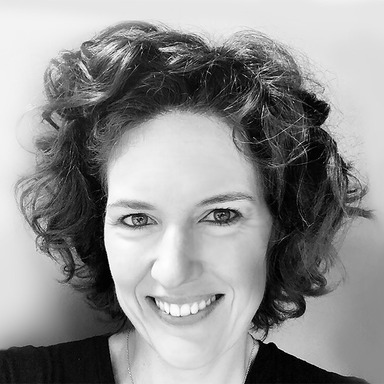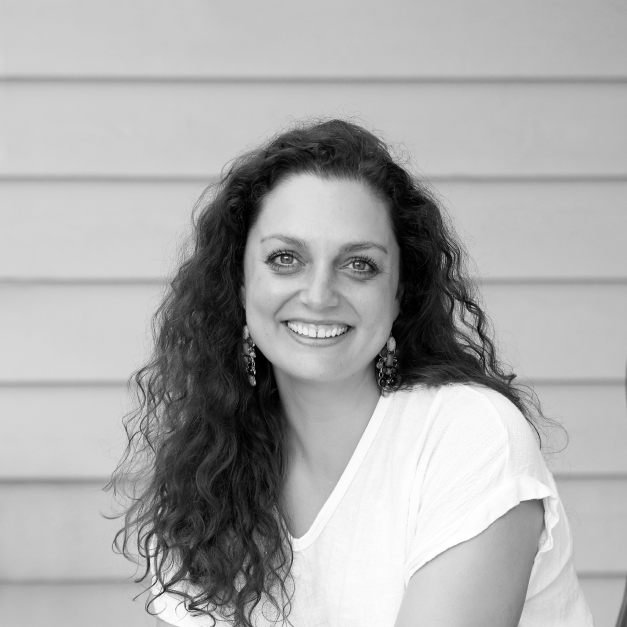
ASKING FOR A FRIEND
How do I navigate being able to do work that aligns with my ethics vs adding to over consumption?
ASKING FOR A FRIEND - QUESTION
Working in advertising means constantly balancing creative purpose with commercial pressures. In this thoughtful discussion, Maria Devereux (Executive Creative Director at Accenture Song) and Katie Feder (registered psychotherapist specialising in creative industry mental health) tackle the challenge of navigating ethics in advertising. They share practical advice on setting personal boundaries, learning to say no without over-explaining, and finding ways to do meaningful work within an industry that can sometimes promote values you don't share. With Andy Wright hosting, this conversation offers honest insights for anyone wondering how to stay true to their principles while building a sustainable creative career. Perfect for creatives questioning their place in an industry that can simultaneously create positive change and encourage wasteful consumerism.
Navigating Ethics in Advertising: How to Balance Creative Purpose with Industry Pressures
Working in advertising can feel like walking a tightrope between doing meaningful work and wrestling with an industry that sometimes encourages the very behaviours we question. One moment you're creating a road safety campaign that could genuinely save lives, the next you're watching brands virtue signal whilst treating their own staff poorly. It's enough to make anyone question whether they can stay true to their values whilst building a career in this space.
The tension between creative purpose and commercial reality is something most of us grapple with at some point. You're not alone if you've found yourself wondering how to navigate an industry that can simultaneously create positive change and promote wasteful consumerism.
This question was answered by Maria Devereux, Executive Creative Director at Accenture Song in North America and former Executive Creative Director at Colenso BBDO, with extensive experience leading creative teams and navigating ethical challenges in advertising. Katie Feder, a registered psychotherapist specialising in Process Orientated Psychology, who works with creative industry professionals on mental health and boundary-setting. Andy Wright served as host, CEO of Streamtime and founder of Never Not Creative.
Recognising the Industry's Dual Nature
Maria acknowledges this fundamental tension head-on: "Absolutely our industry can do amazing things and the power of creativity to solve problems even on a global scale is phenomenal. So that's really exciting. And that I'm sure is a lot of the reason why a lot of us get out of bed in the morning."
This dual nature of advertising isn't something to feel guilty about. The same industry that can promote overconsumption also creates campaigns that change behaviours, save lives, and bring important social issues to light. The key is learning to navigate this complexity rather than pretending it doesn't exist.
Setting Personal Boundaries
Both Maria and Katie emphasise that establishing clear personal boundaries is essential for maintaining your integrity in this industry. Maria shares a powerful example from her own experience: "I have certainly refused to work on a brand because of a personal conflict. It was a casino and I had a family member who had a gambling problem and suffered from quite serious mental illness. And so I just outright said no."
Katie reinforces this approach, noting that "it is about boundaries. It's about identifying your needs. And it's about honouring them." Whether you're dealing with clients whose values don't align with yours or workplace situations that make you uncomfortable, you have the right to say no.
The Power of a Simple No
One of the most practical insights from this discussion centres on how we communicate our boundaries. Katie points out an interesting pattern in how we respond to invitations: "If either of you were to invite me to dinner tonight, I would say, oh, yes, thank you. And that would probably be it. I might ask for your advice. I wouldn't go into 1,000 different explanations as to why I would love to come so much."
Yet when we need to decline something, we often feel compelled to over-explain. "If I were to give you a no, I would feel that I really have to kind of go into this whole narrative around why my no is a no and why it's a valid no and all the rest of it," Katie explains.
The solution? "You can say a hard no with a compassionate stance, hold your boundaries, serve yourself, and people will accept it more readily than you think."
Focusing on What You Can Control
Rather than trying to fix the entire industry overnight, focus on the work you choose to take on and the way you approach it. Maria's example shows that even senior creatives can and do turn down work that conflicts with their values. This isn't about being difficult or unprofessional; it's about being selective in a way that allows you to do your best work on projects you can genuinely support.
Consider what matters most to you. Is it working on campaigns that have a positive social impact? Avoiding clients in certain industries? Ensuring your workplace treats staff fairly? Once you're clear on your non-negotiables, it becomes easier to make decisions that align with your values.
Finding Your Place in the Industry
The advertising industry is vast and varied. If you're struggling with the ethical implications of your current role, remember that there are agencies and clients specifically focused on social good, environmental causes, and positive change. There are also in-house roles at organisations whose missions align more closely with your values.
This doesn't mean you have to abandon commercial work entirely. Many successful creatives build careers that blend commercial projects with more purpose-driven work, using the skills and financial stability from one to support the other.
Navigating Ethics in Advertising: A Personal Journey
Learning how to navigate ethics in advertising whilst building a sustainable career is an ongoing process, not a destination. The industry will continue to present you with complex situations that require careful consideration of your values and boundaries.
Remember that saying no to work that doesn't align with your values isn't just about maintaining your integrity; it's about preserving your mental health and ensuring you can bring your best self to the projects you do choose to take on. As Katie reminds us, you must be "your greatest guardian of self" to avoid being violated ethically or otherwise.
You're not alone in wrestling with these questions, and there's no shame in taking time to figure out where your boundaries lie. The fact that you're thinking about these issues shows you care about doing meaningful work, and that's exactly the kind of perspective our industry needs more of.
our guests
Industry Leader

Maria Devereux
Accenture Song
Mental Health Expert

Katie Feder
Host

